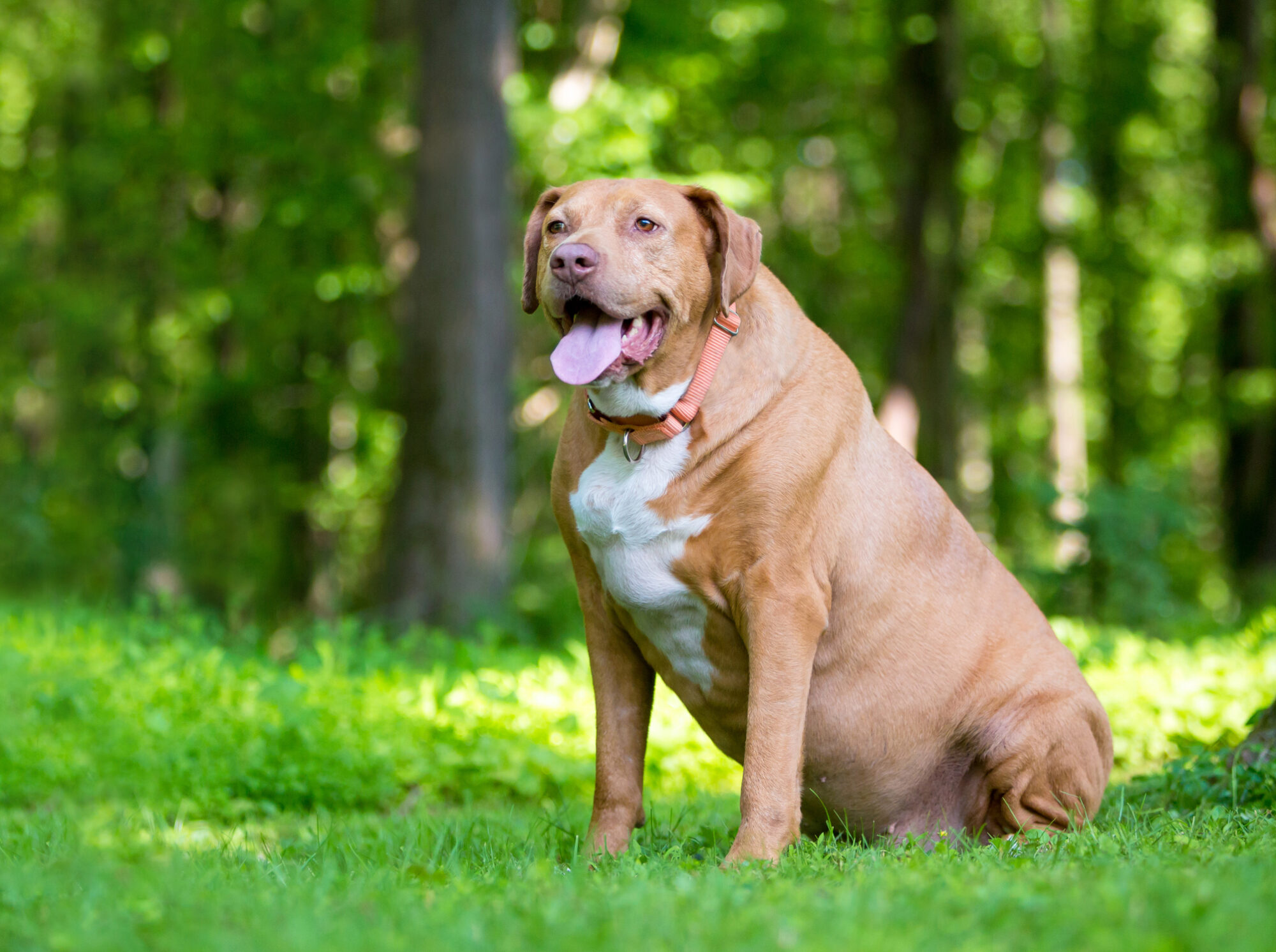Pet Obesity

When you see a pet every single day, it can be challenging to notice gradual changes to their appearance or behavior. That is, until their routine wellness exam—it’s common for pet owners to be surprised by their pet’s weight. Because of the massive impact of pet obesity on overall health, happiness and longevity, we aim to help pet owners maintain their pet’s optimal weight through every life stage.
Causes of Pet Obesity
All pets can suffer the consequences of extra weight. Caused primarily by eating too much, obesity is compounded by not exercising enough. Additionally, other health conditions can impact a pet’s weight. The good news is that with a moderate approach to their diet and exercise routine, it is possible to prevent obesity.
A Look at Breed, Age, and Body Type
A pet is considered overweight when they are 30% over the ideal weight for their breed and body type. Because it can vary wildly between pets, good communication with your veterinarian can be very helpful to achieving a healthy weight.
Pets that are at a healthy weight will have easy to feel ribs and, when viewed from the side, a tucked look to the belly at the hind leg.
A Show of Love
It’s normal and common for pet owners to express affection and appreciation to their pets by giving them food. Whether extra treats or table scraps, it’s critical not to equate food with love. Because pet obesity has the potential to impede normal life, like climbing stairs or going for a walk around the block, maintaining a healthy weight is critical to quality of life and longevity.
Huge Ramifications
Weight gain can lead to or exacerbate the following serious health conditions in pets:
- Diabetes
- Osteoarthritis
- Cancer
- Heart disease
- High blood pressure
- Respiratory problems
While all pets can certainly gain weight if they eat too much and exercise too little, certain breeds may be more susceptible to a little pudge than others. Plus, as they age, pets slow down a bit. While decreased activity should signal fewer calories consumed, many pets continue to eat like they used to despite metabolism changes.
Pet Obesity Prevention
Managing a healthy weight decreases the risk of numerous associated health complications and, in turn, adds to a greater life expectancy and a higher quality of life. Additionally, preventing pet obesity can save lots of money on medical care and insurance costs.
A weight loss treatment plan will be created with your veterinarian to ensure slow, steady progress. The equation is simple: balanced meals and daily exercise (and few, if any, treats). While designing an exercise routine for an older, arthritic pet can seem impossible, we can assure you that the more they move around the better.
If we can assist you with any questions or concerns regarding your pet’s health and wellness, please call us at (260) 637-7676. Our staff is always happy to assist you at Dupont Veterinary Clinic.
